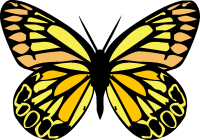No, my opinion has not changed pertaining libraries. In addition to the statement in Chapter 1, Pg. 2 (top), which reads: “Libraries are an essential part of the national information infrastructure, providing people with access and participation in the electronic arena. They are fundamental to the informed debate demanded by the constitution and for the provision of access to electronic information resources to those who might otherwise be excluded.” (http://www.ala.org/ala/oif/statementspols/
statementsif/interpretations/quadaaccesselectronic.htm, I feel libraries offer a relaxed and specialized/unique environment that cannot be duplicated anywhere else. It offers educated and knowledgeable librarians who can interact and offer their expertise to help patrons fulfill their task. They maintain the traditional ambiance and have incorporated the advances of electronic resources, and in so doing, became “virtual libraries”…the best of both worlds. The role libraries have had and still do have in my life is that they are essential now and will continue to be an asset to future generations. I feel they are irreplaceable in today’s world and the last of the traditional methods offering educated service to the public.
As we wind down week five of our nine-week course I feel we’ve covered many areas.
Some of the things I read and participated in over the last few weeks have helped to familiarize me with the necessary steps to locate and process information. The course has made me focus on the word “research”…to explore and follow a line of investigation. To date I feel we were provided with an organized method of approaching this task.
Within the “Steps in Preparing a Research Paper” we learned to organize our thoughts and information. There are key considerations when choosing a topic that I really never thought of before. There are several preliminary sources available to help…it was my first experience with the Library of Congress Subject Headings volumes.
There are simple, yet important questions we need to ask ourselves to provide the framework for our paper (i.e., purpose, focus of the paper and what will be proven or shown). The answers to these questions give us our thesis. These questions also determine the search strategy we will use in locating information. We were shown how to prepare a working outline, which organizes our information in an easy to understand pattern, as well as determining if we should use the popular/scholarly sources. Other considerations would be to identify if we are dealing with a primary, secondary, or tertiary source. Reviewing the differences, it seems that they can be intermingled. I found that it is key to saving time and narrowing your search by using appropriate search terms to locate your sources. The information provided on “Analyzing Information Needs” was extremely helpful as well as detailed information on selecting sources. We are provided with some questions to help evaluate our sources. Documenting our sources is explained in relation to plagiarism.
Computer technology has made it possible to retrieve information with speed and accuracy. We were given the advantages and disadvantages of the electronic format. Two basic concepts are needed when searching electronic information…1) some search engines permit limited searches, while others search the entire contents (full-text search). 2) Electronic records in a database are made up of different data elements (fields). We were introduced to the various types of databases that are available online as well as stressing the different search engines available and methods of searching electronically (i.e., Boolean method involving logic).
Chapter 4 offers information on Classification Systems and Catalogs. There are two major classifications: DC and LC. I am most familiar with the Dewey Decimal Classification System (AKA “DC”), which begins with the number system and is used by Public libraries and small college libraries. The Library of Commerce Classification System (AKA “LC”) begins with letters and is used by larger colleges and universities. Much detail is provided describing each system. This chapter also covers information pertaining to Online Catalogs. It provides some familiar screens with different search techniques.
In Chapter 5 the Internet/World Wide Web is discussed. Simply described it is a series networks linking millions of computers around the world. I was not aware that its inception was in the 1960s for the U.S. Defense Department for military purposes, then expanded to include researchers in universities and other government agencies and continued to expand. In the early 1990s legislation extended its use to K-12 schools, junior colleges, and community colleges. The legislation included provisions for businesses to purchase part of the network for commercial use and so on. Today, the Internet is a massive information and commercial system that extends around the world and includes academic, corporate, governmental and individual entities. Its capabilities are far-reaching. In simple layman’s language we have been introduced to “how the Internet works” without the technical language. I never thought of a browser as the means of accessing The World Wide Web. Search engines are discussed and “spiders” and “crawlers” introduced to me for the first time. I will definitely come away from this chapter more informed concerning the capabilities and workings of the Internet.
Subscribe to:
Post Comments (Atom)

4 comments:
I really like how you were so specific about what you learned! Your writing skills are outstanding, and I commend you on that. You are going to have an extremely successful future!!!
You blog is so nice, and you are very intiutive with what to blog about in relation to our class.
You go girl!
Happy 4th.
Thank You Joanne for that nice blog comment, I am also going to sign up for the library program in the fall, I am sure we will cross paths again and maybe we can evan hook up and do a study session from time to time.
Wow! What a great summary of what has been learned thus far in the course. I'm glad the course is expanding your knowledge on new subjects!
Post a Comment